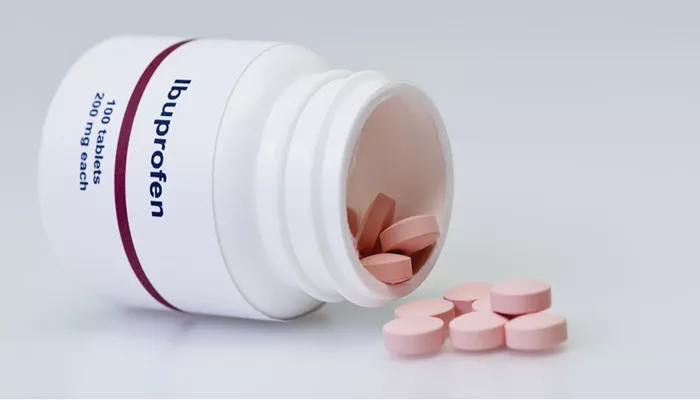Heart failure is a chronic condition where the heart is unable to pump blood efficiently, leading to symptoms such as fatigue, shortness of breath, and fluid retention. Managing heart failure involves a combination of lifestyle changes, medications, and avoiding certain drugs that can exacerbate the condition. This article will explore the medications that should be avoided in patients with heart failure, the reasons behind these recommendations, and alternative treatment options.
What Drugs Should Be Avoided in Heart Failure?
1. Nonsteroidal Anti-Inflammatory Drugs (NSAIDs)
Nonsteroidal anti-inflammatory drugs (NSAIDs), such as ibuprofen, naproxen, and aspirin, are commonly used to treat pain and inflammation. However, these medications can cause fluid retention and worsen heart failure symptoms. NSAIDs can also increase blood pressure and reduce the effectiveness of diuretics, which are crucial in managing fluid retention in heart failure patients.
Why NSAIDs are harmful in heart failure:
Fluid Retention: NSAIDs can cause the kidneys to retain sodium and water, leading to increased fluid volume in the body.
This additional fluid can put extra strain on the heart, exacerbating heart failure symptoms.
Increased Blood Pressure: NSAIDs can increase blood pressure, making it more difficult for the heart to pump blood effectively.
Reduced Diuretic Effectiveness: Diuretics help manage fluid retention in heart failure patients. NSAIDs can counteract the effects of diuretics, reducing their efficacy and leading to increased fluid buildup.
2. Certain Antidiabetic Medications
Some antidiabetic medications can be problematic for heart failure patients. Thiazolidinediones, such as pioglitazone and rosiglitazone, can cause fluid retention and worsen heart failure symptoms.
Why certain antidiabetic medications are harmful in heart failure:
Fluid Retention: Thiazolidinediones can cause the body to retain fluid, which can exacerbate heart failure symptoms.
Weight Gain: These medications can also lead to weight gain, which can put additional strain on the heart.
SEE ALSO: What Is The Pathophysiology of Right-Sided Heart Failure?
3. Calcium Channel Blockers
Calcium channel blockers are used to treat high blood pressure and angina. However, certain calcium channel blockers, such as verapamil and diltiazem, can reduce the strength of heart contractions and worsen heart failure.
Why calcium channel blockers are harmful in heart failure:
Negative Inotropic Effect: Verapamil and diltiazem can decrease the force of the heart’s contractions, making it harder for the heart to pump blood effectively.
Fluid Retention: Some calcium channel blockers can cause fluid retention, exacerbating heart failure symptoms.
4. Corticosteroids
Corticosteroids, such as prednisone and dexamethasone, are used to treat inflammation and autoimmune conditions.
However, these medications can cause fluid retention and increase blood pressure, making them problematic for heart failure patients.
Why corticosteroids are harmful in heart failure:
Fluid Retention: Corticosteroids can cause the kidneys to retain sodium and water, leading to increased fluid volume in the body.
Increased Blood Pressure: Corticosteroids can raise blood pressure, putting additional strain on the heart.
5. Antidepressants
Some antidepressants, particularly tricyclic antidepressants (TCAs) and monoamine oxidase inhibitors (MAOIs), can have negative effects on heart function and worsen heart failure symptoms.
Why certain antidepressants are harmful in heart failure:
Arrhythmias: TCAs can cause arrhythmias, which can be dangerous for heart failure patients.
Blood Pressure Changes: MAOIs can cause significant changes in blood pressure, making it more difficult to manage heart failure.
Certain Antiarrhythmic Medications
While antiarrhythmic medications are used to treat abnormal heart rhythms, some of these drugs can have negative effects on heart failure patients. Drugs such as flecainide and propafenone can reduce the heart’s ability to pump blood effectively.
Why certain antiarrhythmic medications are harmful in heart failure:
Negative Inotropic Effect: Flecainide and propafenone can decrease the strength of the heart’s contractions.
Proarrhythmia: These medications can sometimes cause new arrhythmias, which can be dangerous for heart failure patients.
6. Chemotherapy Drugs
Certain chemotherapy drugs, such as anthracyclines (e.g., doxorubicin) and trastuzumab, can have cardiotoxic effects and worsen heart failure.
Why certain chemotherapy drugs are harmful in heart failure:
Cardiotoxicity: Anthracyclines and trastuzumab can damage heart cells, leading to worsening heart failure.
Decreased Heart Function: These drugs can reduce the heart’s ability to pump blood effectively.
7. Stimulants
Stimulants, such as amphetamines and cocaine, can have significant negative effects on heart function and should be avoided in heart failure patients.
Why stimulants are harmful in heart failure:
Increased Heart Rate and Blood Pressure: Stimulants can increase heart rate and blood pressure, putting additional strain on the heart.
Arrhythmias: These drugs can cause arrhythmias, which can be dangerous for heart failure patients.
8. Decongestants
Decongestants, such as pseudoephedrine and phenylephrine, are commonly used to treat nasal congestion. However, these medications can increase blood pressure and heart rate, making them problematic for heart failure patients.
Why decongestants are harmful in heart failure:
Increased Blood Pressure: Decongestants can raise blood pressure, putting additional strain on the heart.
Increased Heart Rate: These medications can increase heart rate, making it more difficult for the heart to pump blood effectively.
Conclusion
Managing heart failure requires careful consideration of the medications used to treat other conditions. It is crucial for heart failure patients to avoid certain drugs that can exacerbate their condition. Nonsteroidal anti-inflammatory drugs (NSAIDs), certain antidiabetic medications, calcium channel blockers, corticosteroids, some antidepressants, certain antiarrhythmic medications, chemotherapy drugs, stimulants, and decongestants can all have negative effects on heart function and should be avoided.
Patients with heart failure should work closely with their healthcare providers to ensure that their medications are safe and effective. Alternative treatment options should be considered to manage pain, inflammation, diabetes, high blood pressure, depression, arrhythmias, cancer, and other conditions without compromising heart function.

